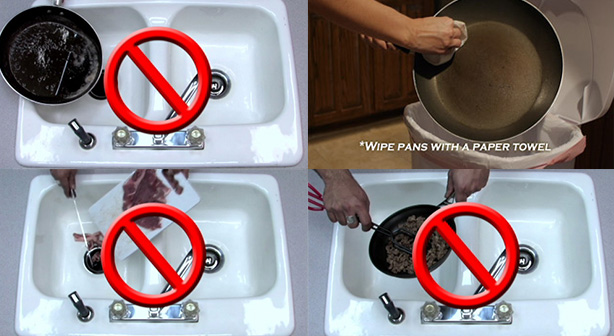Short answer: No.
No amount of hot water can unclog a grease blockage in your pipes. If you try to pour fats, oils, and grease down the drain with hot water, you are actually making the problem worse. The hot water simply allows the grease to move a little farther down your pipes and creates a clog in a more difficult to access (and more expensive) place to repair.
You should always wipe greasy pots and pans with a paper towel before washing them in the sink. Then use COLD water when washing pots and pans. The tiny amounts of grease left on the pan after wiping with a paper towel will solidify before going down your pipes, making it less likely to stick inside your pipes.
Remember, the best defense is a fat, oil, and grease free diet for your pipes!

